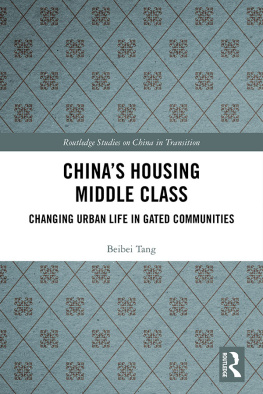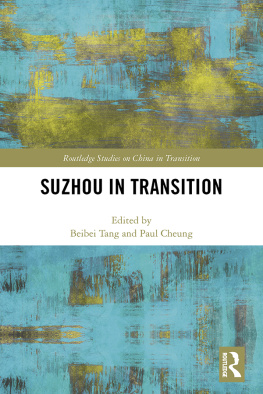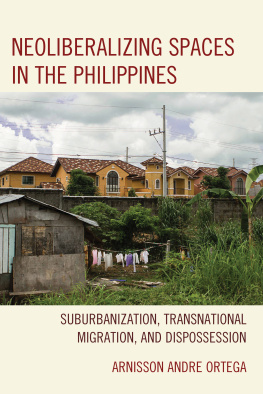Chinas Housing Middle Class
Homeownership plays a significant role in locating the middle class in most western societies, associated with market, consumerism, democracy, and people like us, the significant features of the middle class for any society. In China, private homeownership was not the norm from 1949, when the Chinese Communist Party took power, until the 1990s. In the past three decades, however, there has been fast-growing housing consumption and private homeowners have become the most significantly changing aspect of Chinese urban life. In particular, the rise of gated communities has become a predominant feature of the urban landscape. Similar to their western counterparts, the gated communities in China exemplify high status symbols with enclosed and restricted residential areas, exclusive community parks and recreational facilities, and professional management and security services. But different from western societies where gated communities usually represent luxurious lifestyles limited only to a small group of people, in urban China gated communities have become one major form of supply in the housing market and one of the most popular and desirable choices for homebuyers. Private homeownership and residency in gated communities altogether characterize the most significant aspect of comfort living and distinct lifestyles of Chinas new middle classes, who have successfully got ahead in the socialist market economy.
This book examines the formation of Chinas housing middle class. It develops a theoretical argument about, and provides empirical evidence of, the heterogeneity of Chinas new middle class, which underlines the relations between the state, market, and life chances under a socialist market economy. As such it will be of huge interest to students and scholars of Chinese society, sociology, and politics.
Beibei Tang is Associate Professor in the Department of China Studies at Xian Jiaotong-Liverpool University, China.
Routledge Studies on China in Transition
Series Editor: David S. G. Goodman
For a full list of available titles: www.routledge.com/Routledge-Studies-on-China-in-Transition/book-series/SE0082
Young Chinese in Urban China
Alex Cockain
Prostitution Scandals in China
Policing, media and society
Elaine Jeffreys
Unequal China
The political economy and cultural politics of inequality
Edited by Wanning Sun and
Yingjie Guo
Elites and Governance in China
Edited by Xiaowei Zang and Chien-Wen Kou
Choosing Chinas Leaders
Edited by Chien-Wen Kou and Xiaowei Zang
Rural Policy Implementation in Contemporary China
New socialist countryside
Anna L. Ahlers
NGO Governance and Management in China
Edited by Reza Hasmath and Jennifer Y. J. Hsu
Dams, Migration and Authoritarianism in China
The Local State in Yunnan
Sabrina Habich
New Mentalities of Government in China
Edited by David Bray and Elaine Jeffreys
Chinas Cinema of Class
Audiences and narratives
Nicole Talmacs
Economic Development in Chinas Northwest
Entrepreneurship and identity along Chinas multi-ethnic borderlands
Joshua Bird
Governing HIV in China
Commercial sex, homosexuality and rural-to-urban migration
Elaine Jeffreys and SU Gang
Chinas Housing Middle Class
Changing urban life in gated communities
Beibei Tang
Chinas Housing Middle Class
Changing Urban Life in Gated Communities
Beibei Tang
First published 2018
by Routledge
2 Park Square, Milton Park, Abingdon, Oxon OX14 4RN
and by Routledge
711 Third Avenue, New York, NY 10017
Routledge is an imprint of the Taylor & Francis Group, an informa business
2018 Beibei Tang
The right of Beibei Tang to be identified as author of this work has been asserted by her in accordance with sections 77 and 78 of the Copyright, Designs and Patents Act 1988.
All rights reserved. No part of this book may be reprinted or reproduced or utilized in any form or by any electronic, mechanical, or other means, now known or hereafter invented, including photocopying and recording, or in any information storage or retrieval system, without permission in writing from the publishers.
Trademark notice: Product or corporate names may be trademarks or registered trademarks, and are used only for identification and explanation without intent to infringe.
British Library Cataloguing in Publication Data
A catalogue record for this book is available from the British Library
Library of Congress Cataloging in Publication Data
A catalog record for this book has been requested
ISBN: 978-1-138-06985-5 (hbk)
ISBN: 978-1-315-11524-5 (ebk)
Typeset in Sabon
by Wearset Ltd, Boldon, Tyne and Wear
Contents
Tables
Acknowledgments
I would like to thank Prof. Luigi Tomba and Prof. Jonathan Unger who served as my PhD supervisor and advisor and who have been consistently providing constructive comments and suggestions for my work. I have benefited greatly from their guidance and mentoring in the past decade. Without their support, the work would not have been completed, nor perhaps even started.
I thank The Australian National University (ANU) for providing the research facilities and intellectual environment for my PhD and postdoctoral research. I am grateful to Prof. John Dryzek for his enlightening guidance and support for my postdoctoral research. I appreciate the intellectual support from my colleagues at ANU, especially Prof. Tamara Jacka, Prof. Andrew Kipnis, and Dr Sally Sargeson.
I thank Prof. David Goodman and Xian Jiaotaong-Liverpool University, Suzhou, for supporting me to complete this book.
I would like to give my special gratitude to all my interviewees in Shenyang and all the people who kindly offered me their help in the field, especially Prof. Wang Haiyan who introduced me to the field and Shenyang Normal University which hosted me as a visiting fellow during my fieldwork.
Last but not least, I wish to thank my family and friends in China and Australia for their unconditional love and support in all these years.
Abbreviations
| CCP | Chinese Communist Party |
| GDP | Gross Domestic Product |
| HPF | Housing Provident Fund |
| NBS | National Bureau of Statistics |
| PRC | Peoples Republic of China |
| RMB | Renminbi (The Peoples Currency) |
| SOE | State-owned Enterprise |
| SOI | State-owned Institution |
Introduction
The emergence of Chinas housing middle class: homeownership, gated communities, and life chances in urban China
Homeownership plays a significant role in locating the middle class in most western societies. Homeownership is associated with market, consumerism, democracy, and people like us, the significant features of the middle class for any society. In China, private homeownership had not been the norm from 1949, when the Chinese Communist Party (CCP) took power, until the 1990s. In the past three decades, there has been fast-growing housing consumption and private homeowners have become the most significantly changing aspect of Chinese urban life. In particular, the rise of gated communities has become a predominant feature of the urban landscape. Similar to their western counterparts, gated communities in China exemplify high status symbols with enclosed and restricted residential areas, exclusive community parks and recreational facilities, and professional management and security services. But different from western societies where gated communities usually represent luxurious lifestyles only limited to a small group of people (e.g., Blakely and Snyder 1997; Atkinson and Blandy 2005), in urban China gated communities have become one major form of supply in the housing market and one of the most popular and desirable choices for homebuyers. Private homeownership and residency in gated communities altogether characterize the most significant aspect of comfort living and distinct lifestyles of Chinas new middle classes, who have successfully got ahead in the socialist market economy.









